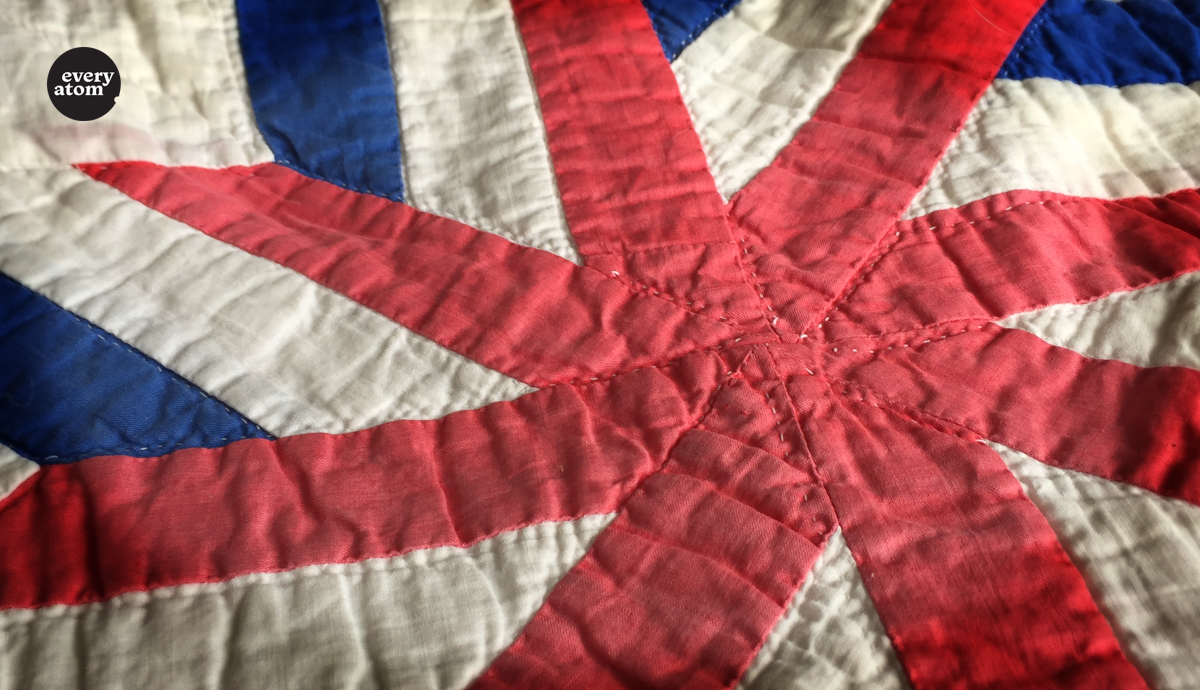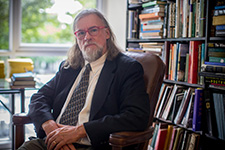Every Atom | No. 24
Introduction to Every Atom by project curator Brian Clements
All through his work, Whitman refers to America as “these states.” Whitman is in love with the states. The thought of them overwhelms him with pride. In “Song of Myself” he dramatizes his affection for the states. He calls America “the nation of many nations,” and in that phrase he captures a strong quotient of his joy in democracy. He’s “a southerner soon as a northerner,” which is something to say in the year 1855—and perhaps still is today. Whitman tells us that he’s “a Yankee bound my own way...,”
A Kentuckian walking the vale of the Elkhorn in my deerskin leggings,
A boatman over the lakes or bays or along coasts . . . . a Hoosier, a Badger, a Buckeye,
A Lousianian or Georgian, a poke-easy from sandhills and pines.
He’s at home in Canada too, which Whitman no doubt wished would in time merge with these states, at home on the hills of Vermont or the woods of Maine or the Texas ranch. He’s a “comrade of Californians . . . . comrade of free northwesterners, loving their big proportions.”
Whitman returns to the theme of the states all through the poem, and all through his work, both poetry and prose. It has an immediate resonance for him of course. Whitman is particularly assiduous to sew together north and south, reminding his contemporaries that so far—so far—they are one. And of course Whitman hopes that will continue, though the jeopardy is great.
Whitman’s fascination with these states applies to more than his contemporary situation, though. He tells us again and again how different the states are. They are like separate nations—though they all cohere as one, or should. Then and now, you can find yourself born in Vermont or Maine and know from early on in life that your birthplace is not your true state, not the place that coheres best with your spirit. So off you go to Texas or Alabama or Ohio or even California and set yourself down in a state that is almost as different from your Maine or your Vermont as another nation, but this new nation is still yours.
It’s often said, and there is little doubt that Whitman would approve, that the true New Yorkers, the ones who have the strongest claim to life in Manhattan and Brooklyn are not always the ones who are born there. It’s those who, often beginning early in life, pine for the life of the ultimate American metropolis. They come for the commerce or the art; they come because their sexuality only fits a big, roaring city; they come for ambition, or they come for the sort of isolation and privacy that great cities also provide. They come to be free.
So a young girl born on the Upper East Side can begin pining early for the plains, the mountains, for horses and the freedom of grand open spaces. So off she goes to Wyoming, to North Dakota or South. And there she is happy—the state expresses her soul.
Over time these states have established firm, potent identities. They protect and affirm those who are born to them and they beckon those whose hearts yearn for just such places as they are. Is there any nation in the world where there is such regional difference as there is in America?
This invigorating difference comes with grave dangers. The states that are nearly nations in themselves always have the potential to break apart from one another and even to fly into violent warfare. It happened once, in 1861. The chances of its happening again are quite real. One may see it in one’s own lifetime.
All the more reason to stress the unity of the states as well as their singularity. Different as we are, we are one: bound together by our commitment to liberty and equality and our belief in the pursuit of happiness for all. That’s why Whitman can pass serenely from one state to the next, at least in the zones of his imagination. He can be that Kentuckian in leggings, stalking game; a Yankee trader; “a Hoosier, a Badger, a Buckeye”—a person from Indiana, from Wisconsin, or from Ohio. The states compete with each other now as they did then—now through elections, through sports, in commerce and art. Fifty nations, each a star on the flag: fifty nations that are absolutely singular, unique in their identities, but fifty nations that compose one.
Recommended
Nor’easter
Post-Op Appointment With My Father
Cedar Valley Youth Poet Laureate | Fall 2024 Workshop







